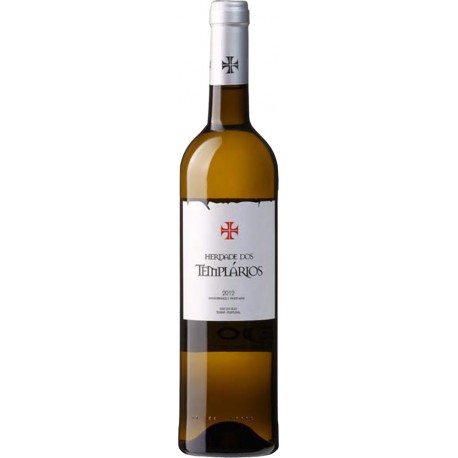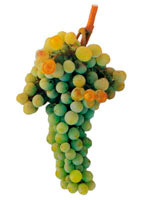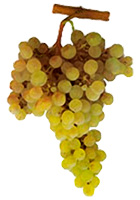 View larger
View larger
Herdade dos Templarios white wine
HT00611
New product
Citrus and tropical fruit aroma lead to a crisp, fresh palate with mouth-filling flavors of apple, melon, tangerine and passion fruit; lively lingering aftertaste.
Vinification: selective and manual Harvest in 20 kg boxes. Total stripping followed by bleeding with spontaneous fermentation at 12ºC in order to keep all the aromatic potential.
Data sheet
| Export Box: | 6 bottles with 75cl |
| Euro Pallet | 110 boxes |
More info
White wine from the Tejo region
It’s a premium white wine made from the grapes varieties Arinto, Moscatel and Riesling.
With a floral aroma with notes of tropical fruit and citrus.
In the mouth is elegant and very fresh. With persistent mouths end with a slight touch of honey.
Designation: Herdade dos Templarios
Appellation: DOC do Tejo
Origin: Tomar, Portugal
Grape varieties: Arinto 50%, Moscatel 30% and Riesling - 20%
Winemaker tasting notes: “Floral aroma with notes of tropical fruit and citrus. Elegant and fresh in the mouth, is dominated by orange blossom notes and the balanced minerality. Persistent mouths end with a slight touch of honey.”
Analysis
Alcohol content 12.5% vol.
pH 3,24
Total acidity 5,5 g/l
Reducing sugars <0.9 g/l
Wine reviews
Review 2015
Portuguese Wine Magazine 7/2015 - 14.5pts
Floral notes of orange and Moscatel, with Arinto and Riesling to provide the vegetable side, with lemon leaves.
In the mouth is more restrained, median concentration, some bitter and sober end.
Enjoy it with fish and seafood.
Award:
85pts Wine Enthusiast
The Grapes:
 Moscatel
Moscatel
This variety is known to have originated in Egypt, having spread to the Mediterranean from Alexandria, possibly during the period of the Roman Empire (Galet 1985).
It is a grape of average strength and has a difficult flowering and fertilization, prone to not fruiting after flowering. Resistant to dryness, it's sensitive to mildew and powdery mildew.
There are various types of Moscatel in the world (ex. the French Muscat, the Italian Moscato), and all of them with a significant concentration of aromatic (terpene) and flavor components.
However, it's the Portuguese Moscatel that has the best concentration and richness of these components.
The typical aromas of Moscatel are well-known: citrus flowers and zest, honey, lime, rose, lychee, pear, date and raisin, which create memorable wines.
 Arinto:
Arinto:
Grown throughout Portugal, this grape produces vibrant wines with flavors of orchard fruits and citrus, and are best enjoyed young.
In warmer regions like Tejo, the grape retains its high natural acidity and can work well as a single-varietal wine or in a blend.
Riesling
Riesling is a light-skinned, aromatic grape of German origin which is – if the majority of top wine critics are to be believed – the world's finest white-wine grape variety.
Riesling is used to make crisp, refreshing wines with pronounced acidity.
In the Tejo region the Riesling style in its own right, with crisp, citrus-scented acidity and aromas of toast and honeysuckle.
A grape variety well adapted to the Tejo region, which produces a fantastic blend with Arinto and Moscatel grapes.





